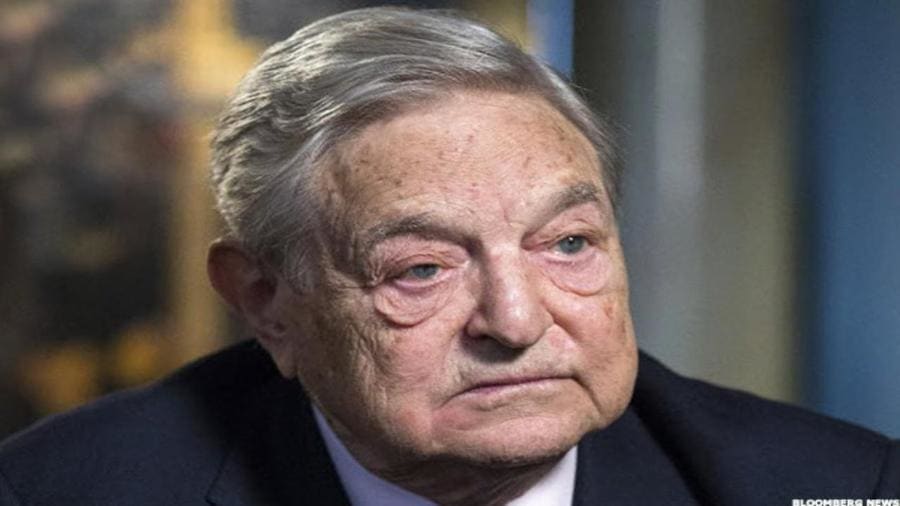
Elon Musk finds himself at the center of a new controversy that he himself caused.
The billionaire entrepreneur likes situations that position him alone against the establishment. This enables him to further burnish his credentials as a maverick and free thinker.
For the past couple of days, however, the billionaire has been criticized after he leveled serious accusations against his peer billionaire, George Soros.
In a message posted to Twitter on May 15, Musk claimed, without proof, that Soros hates humanity.
"Soros reminds me of Magneto," Musk tweeted on May 15, referring to the super-villain or the anti-hero in the Marvel Comics universe.
Magneto is a powerful mutant, belonging to a fictional subspecies of humans born with superhuman abilities, who has the ability to generate and control magnetic fields. He is the sworn enemy of the group of superheroic mutants named the X-Men.
He views mutants as evolutionarily superior to humans and dismisses the possibility of peaceful coexistence between humans and mutants. He first wanted to take over the world to allow mutants, whom he refers to as superior homo, to replace humans as the dominant species.
'Soros Hates Humanity'
Magneto is a Holocaust survivor, whose extreme methods and cynical philosophy stem from his determination to protect mutants from a similar fate at the hands of a fearful world.
Soros, 92, is also a Holocaust survivor. He is Jewish of Hungarian origin.
"Magneto's experiences during the Holocaust as a survivor shaped his perspective as well as his depth and empathy," commented journalist Brian Krassenstein, who regularly interacts with Musk on the platform.
"Soros, also a Holocaust survivor, gets attacked nonstop for his good intentions, which some Americans think are bad merely because they disagree with his political affiliations."
"You assume they are good intentions," Musk responded. "They are not. He wants to erode the very fabric of civilization."
He then added: "Soros hates humanity."
Soros didn't respond to a request for comment.
Musk's statements have earned him condemnation from Jewish organizations, which see them as anti-Semitism.
"Soros often is held up by the far-right, using antisemitic tropes, as the source of the world’s problems,” Jonathan Greenblatt, CEO of the Anti-Defamation League, a civil right group that tracks and reports antisemitic actions, tweeted.
"To see Elon Musk, regardless of his intent, feed this segment — comparing him to a Jewish supervillain, claiming Soros ‘hates humanity’ — is not just distressing, it’s dangerous: it will embolden extremists who already contrive anti-Jewish conspiracies and have tried to attack Soros and Jewish communities as a result."
'Soros’s Instructions to His Pet Prosecutors'
These criticisms do not deter Musk. The opposite: They seem to animate him, since he has just renewed his attacks against Soros. Musk portrays him as a villain who controls many district attorneys like puppets.
"ADL should just drop the 'A,'" the entrepreneur responded to Greenblatt.
Then he went to the attack.
"Soros astutely identified a massive arbitrage opportunity in district attorney elections, where a relatively small amount of money has outsized influence," the billionaire said on May 17. "Soros’s instructions to his pet prosecutors were (essentially) to minimize prosecuting even violent criminals."
"That’s why a criminal – someone who had already stabbed his roommate – could brutally assault Dave Chapelle on stage with that same deadly weapon and yet receive merely a misdemeanor!" Musk charged, without providing evidence.
In an interview with CNBC on May 16, Musk said he had the right to tweet his opinions and will continue to do so, even if it scares away advertisers.
"I’ll say what I want to say, and if the consequence of that is losing money, so be it,” he said.
Soros is the subject of many conspiracy theories from the right and from extremists. His critics accuse him of supporting weak-on-crime candidates for prosecutorial posts, contributing to a rise in crime in their cities.
The financier has made numerous contributions in support of reform-minded prosecutors across the country since 2015. In a Wall Street Journal op-ed last summer, the billionaire said that he had "no intention of stopping" his support of progressive candidates running to become prosecutors or for reelection.
"The funds I provide enable sensible reform-minded candidates to receive a hearing from the public. Judging by the results, the public likes what it's hearing," the financier said.
Donald Trump and his supporters are accusing the world's most famous short-seller of being behind last April's indictment of the former Republican president by a Manhattan grand jury. They say the indictment is a setup by Soros, who "handpicked and funded" the Manhattan district attorney, Alvin L. Bragg.
The financier has said that he doesn't know Bragg and never directly funded his campaign.
"I did not contribute to his campaign and I don't know him," Soros told Semafor about Bragg. "I think some on the right would rather focus on far-fetched conspiracy theories than on the serious charges against the former president."
While Soros did not contribute directly to Bragg's campaign, his son Jonathan and Jonathan's wife, Jennifer, donated a total of $20,000 to Bragg's 2021 campaign, according to the New York State Board of Elections.
The link between George Soros and Bragg is indirect: Between 2016 and 2022, Soros personally and Democracy PAC -- a PAC to which Mr. Soros has contributed funds -- have together contributed roughly $4 million to Color of Change’s PAC, including $1 million in May 2021, Michael Vachon, a spokesperson, told TheStreet in April.
"None of those funds were earmarked for Bragg’s campaign," Vachon said.
The Color Of Change PAC spent $500,000 on Bragg's 2021 election campaign.







